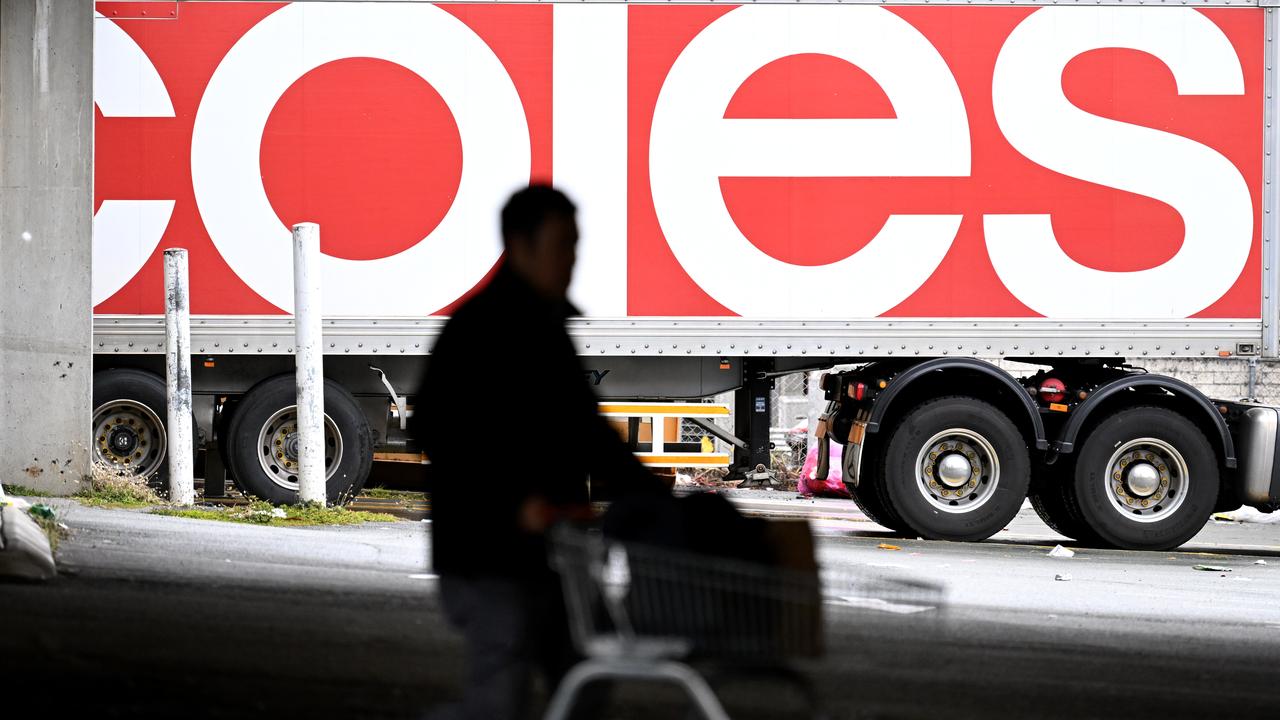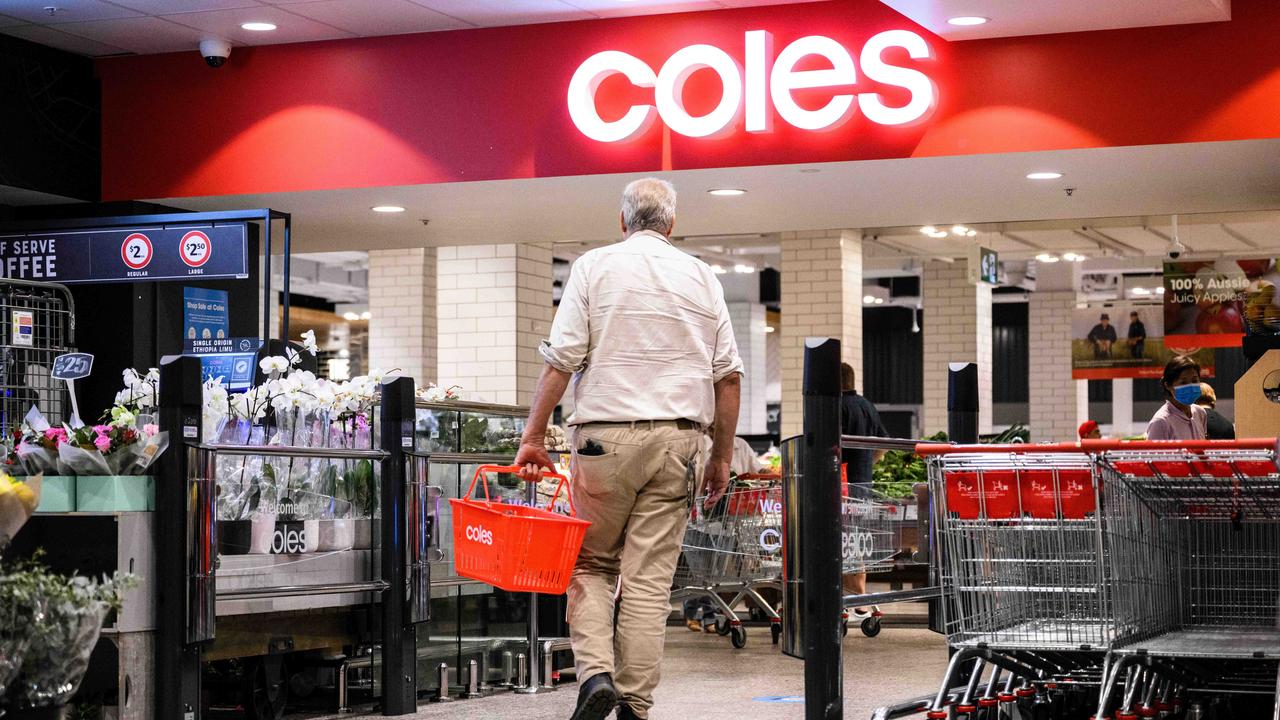Coles tells its suppliers to cut costs as supermarket inflation soars
Coles has issued a stern warning to suppliers who want prices to rise to help cover their increasing operational costs.
Coles has told its suppliers to cut operational costs instead of requesting price rises, warning the supermarket giant may not accept their request for a cost increase even if they can prove their inputs have gone up.
It comes as supermarket shelf prices continue to rise. Last week, a trading update revealed supermarket inflation was at 7.1 per cent for the first quarter at Coles, compared to 4.3 per cent in the previous fourth quarter. Fresh food prices were up 8.8 per cent.
Raw materials, commodity, shipping and fuel costs were the key drivers of supplier input cost requests.
“All businesses will incur impacts to the cost of doing business at some point,” Coles wrote to suppliers, according to The Australian, which obtained the note.
“Every business needs to turn its mind to how it can remove costs from its operations. This is something that Coles continually does and is a fundamental part of our strategy.
“Even where you can substantiate increases to cost of doing business including rising cost of inputs, Coles may not accept your request for a cost increase in full or at all.
“Coles must balance customer needs, Coles value proposition and the competitive environment. Your organisation needs to be continually reviewing how you operate to offset costs.”

The publication also reported Coles said it expects suppliers to pass on cost reductions to the supermarket when there are decreases in commodity input costs.
news.com.au has contacted Coles for further comment.
Coles’ first quarter trading update showed fresh food inflation continued to be driven by bakery, with higher wheat prices, as well as fresh produce such as berries and bananas.
Coles Group chief executive Steven Cain said: “Our commitment to providing trusted value, including Australia’s widest range of own brand products and the successful introduction of ‘dropped and locked’ prices, is more relevant than ever with rising inflation placing pressure on many Australian households.”

Grocery prices in Australia have risen by almost 10 per cent in the past year, according to
the Frugl Grocery Price Index, by the price comparison app of the same name.
The data, released a week ago, showed house and cleaning products were 16.14 per cent more expensive than 12 months ago, beef was up 14.44 per cent, and dairy and eggs were up 13.72 per cent.
The largest price increases were found in the Northern Territory.
Further cost-of-living impacts are expected as a result of recent floods across prime agricultural land in Victoria, NSW and Tasmania.
After visiting NSW’s central west region of Forbes earlier this month, Prime Minister Anthony Albanese said there was “no doubt” the weather event would “feed into higher prices”.
Treasurer Jim Chalmers warned the same.
“Obviously, when you’re talking about absolutely prime agricultural land, making some of the biggest contributions to our grocery aisles, there will be an impact and it will be a substantial impact, I fear,” he said October 17.
“I think Australians do need to brace for a cost-of-living impact from these floods. These are likely to push up the cost of living when Australians are already under the pump.”
Coles confirmed to news.com.au the note went out to suppliers via email last week.
“We have a well-established process to manage supplier requests for price increases and consider the merits of such requests, being mindful of both customer impacts and ensuring Grocery Code obligations are met,” a spokeswoman said.
“We assess all requests on a case-by-case basis, if there is merit in the request and it’s based on raw material or packaging increases for example, we will accept it.
“We appreciate the way our suppliers have been working with us to navigate the challenges around inflation together. We want to make sure we’re in regular contact with them on the process that needs to be followed to ensure their requests are actioned.
“Over the past few months we have dedicated additional resources to ensure we can respond to our suppliers in a timely manner.”






